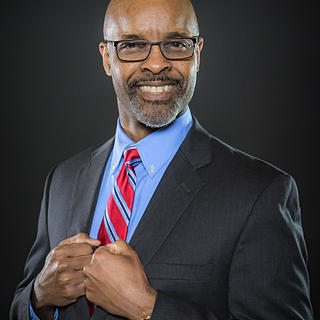Are You Ready to Lead?
- Mike Nwankwo
- Aug 20, 2019
- 4 min read

Leadership is intentional. It takes preparation. It calls for a personal investment in yourself and in others. There are at least three questions each person should ask themselves before embarking upon the leadership journey. Others will be asking the same questions about you if they are not already doing so currently. They will ask:
1. Do You Care for Me? This is a question about compassion. Abraham Lincoln said, "If you would win a man to your cause, first convince him that you are his sincere friend." Or at least show that you sincerely care about his or her well-being. As a boss, it's all about me. As a leader, it's all about others. As a boss, I want to communicate my information to others. As a leader, I want to communicate and connect with others. But this connection will not happen unless I truly care about the other person. John Maxwell said, "Whenever you can help other people to understand that you genuinely care about them, you open the door to connection, communication, and interaction. You begin to create a relationship and good relationships usually lead to good things: ideas, growth, partnerships, and more." People are willing to follow leaders who genuinely care for them. But that's not all.
2. Can You Help Me? This is a competence question. Just because one is an exceptional individual contributor does not mean he will become a good leader. A good individual contributor knows how to get things done. They complete their assignments and hit their numbers. However, a leader gets things done through other people. Her job is to get everyone across the finish line, to ensure everyone is rowing in the same direction, to accomplish the goals of the organization... through others. Followers want to know if the leader can help them succeed. A small percentage of people are naturally gifted at leading. The rest of us need training, mentoring, and/or coaching to become the effective leaders our organizations need. As many of you know, bad management (leadership) is offered as the number one reason why people leave their jobs. Other reasons include job dissatisfaction, under-utilization of skills, lack of passion in the role, etc. According to an article written by Facebook's HR leaders in Harvard Business Review, "If you want to keep your people — especially your stars — it’s time to pay more attention to how you design their work. Most companies design jobs and then slot people into them. Our best managers sometimes do the opposite: When they find talented people, they’re open to creating jobs around them." Facebook found a way for the leaders to help their people operate in their strength zones, grow their skills, and chart a path for career growth. Good leaders know how to align the strengths and zeal of the people with the needs of the organization. They help the team by helping the individuals. There is another question followers will ask.
3. Can I Trust You? This is a question about character. The term "ethical leadership" should be redundant. For some, it is not. They believe how they live personally and how they lead publicly are mutually exclusive. However, Hughes, Ginnett, and Curphy make a case for authentic leaders who have a firm foundation based upon core values. They are the same in public and in private. "Authentic leaders have strong ethical convictions that guide their behavior not so much to avoid doing "wrong" things as to always try to do the "right" things, including treating others with respect and dignity. They know where they stand on fundamental values and key issues." Many followers can identify an authentic leader versus an inauthentic one (also known as a hypocrite). In a study performed by Kouzes and Posner (surveys asking thousands of constituents what they expect and admire in a leader), four leadership traits have consistently topped the list since 1987... over 30 years. They are honest, forward-looking, inspiring, and competent. These traits have remained constant in survey after survey in Australia, Canada, Japan, Korea, Malaysia, USA, etc. Yes, it is important that a leader can do the job, have a vision, and inspire others to share the vision. However, if the people do not trust the leader, his effectiveness will be severely limited. Good leaders model the way. Others can trust them.
What other foundational questions would you add to the list? If you have suggestions, please share. To learn more leadership tips, please contact us. At Apogee, we work with entities to strengthen their pipeline of leaders. We specialize in helping others lead through change. We welcome the opportunity to help you grow your team and/or you personally in the area of leadership.
That's it for now. Until the next tip....
BE SURE TO ASK ME ABOUT LIVE2LEAD 2019! Click here to register for the Cleveland event.
Mike Nwankwo
Founder & CEO
216.505.0254
Please subscribe to my mailing list and share with your friends. Thanks.
Mobile users can go to https://www.apogeeleader.com and click on "Contact" to subscribe.





Comments